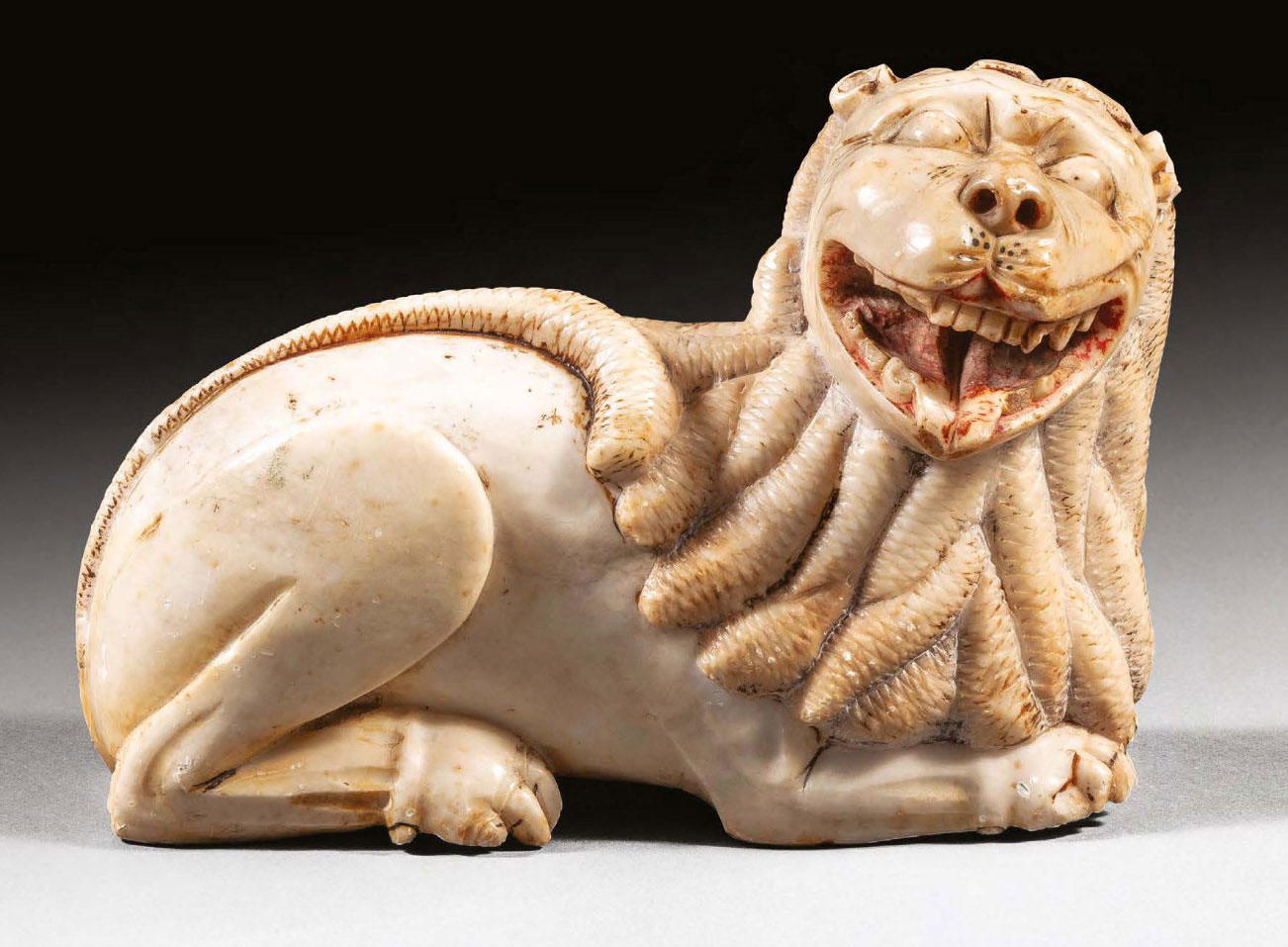| |
Leone in pietra di Huamanga, Perù XVII secolo.
Dimensioni: h. 13 x 19 cm.
Bella scultura in pietra di Huamanga raffigurante un leone accucciato, lavorata a tutto tondo e con tracce di policromia originale.
Questa tipologia di manufatti, realizzati con la particolare pietra di origine vulcanica nota come alabastro delle Ande, risalgono alla seconda metà del XVI secolo. In questo periodo, le cave di estrazione di questa singolare pietra, situate nella città di Huamanga nella regione di Ayacucho a sud del Perù, iniziarono la loro attività di scavo. Questo sviluppo coincise con l'insediamento dei Gesuiti spagnoli nella regione, che influenzarono notevolmente la produzione artistica locale.
---------------------------
Lion in Huamanga Stone, Peru, 17th Century
Dimensions: h. 13 x 19 cm
A fine sculpture in Huamanga stone depicting a crouching lion, carved in the round and retaining traces of its original polychrome.
This type of work, crafted from the unique volcanic stone known as Andean alabaster, dates back to the second half of the 16th Century. During this period, the quarries for this distinctive stone, located in the city of Huamanga in the Ayacucho region of southern Peru, began their excavation activities. This development coincided with the arrival of Spanish Jesuits in the region, who significantly influenced local artistic production.
--------------------------
Lion en pierre de Huamanga, Pérou, XVIIe siècle
Dimensions : h. 13 x 19 cm
Belle sculpture en pierre de Huamanga représentant un lion couché, sculpté en ronde-bosse et conservant des traces de polychromie originale.
Ce type d’objet, réalisé avec cette pierre volcanique particulière connue sous le nom d’albâtre des Andes, remonte à la seconde moitié du XVIe siècle. À cette époque, les carrières de cette pierre singulière, situées dans la ville de Huamanga, dans la région d’Ayacucho au sud du Pérou, commencèrent leurs activités d’extraction. Ce développement coïncida avec l’installation des Jésuites espagnols dans la région, qui influencèrent fortement la production artistique locale.
|

